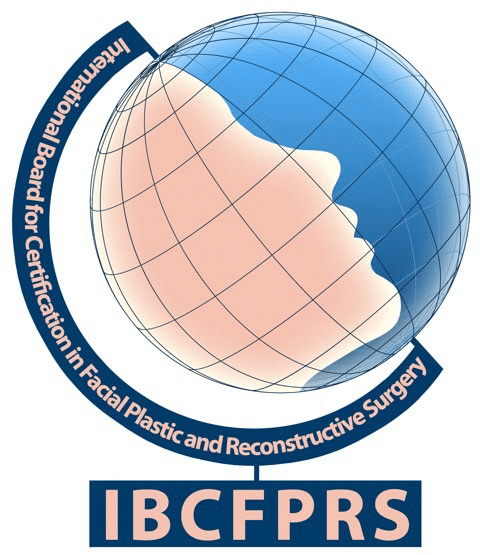Patient FAQs
The IBCFPRS credential signifies that a surgeon:
- Has completed an approved residency in Otolaryngology – Head and Neck Surgery or Plastic Surgery
- Earned prior certification by the National Examining Board in Otolaryngology – Head and Neck Surgery or Plastic Surgery
- Has successfully completed and passed a two-day written and oral examination
- Has submitted for peer-review an acceptable record of at least two-years’ clinical experience, including 100 consecutive operative reports in facial plastic and reconstructive surgery.
- Holds the appropriate licensure and adheres to the International Federation of Facial Plastic Surgery Societies’ (IFFPSS) Code of Ethics.
Click here to view a list of all surgeons who have earned this credential, listed by their member society.
Information about specific procedures can be found at www.aafprs.org
The cost of any surgery varies with the surgeon’s training, experience, geographic location, and other factors, including the physician’s assessment of patient history, skin type, diagnosis and treatment.
As a certifying board, the IBCFPRS does not track surgical fees, discount or otherwise. In general it is advisable to select a surgeon that has the training and experience to produce good results from the procedure you want.
Some surgeons do provide pro bono services, but the IBCFPRS does not keep any records in this regard. Some surgeons also have payment plans set up for their patients.
Yes, Board certification is considered a benchmark of excellence, but it is not the only one. A patient choosing a surgeon for facial plastic surgery must take the responsibility for asking questions and choosing the right surgeon. Ask the surgeon for names of patients who have had the surgery you have in mind and who have given the surgeon permission to provide their names to prospective patients. Check those patients’ experience. Make sure the surgeon you choose is one you can relate to and who answers your questions. Also, not every surgeon performs every facial plastic surgery procedure. Some focus on specific procedures. Make sure your surgeon is experienced in the procedure you want and regularly performs that procedure.
Ask your family doctor whom they recommend. Check with hairdressers and cosmetologists (Really! They see the scars). You can get recommendations from others, but you need to feel confident in and comfortable with the surgeon you choose.
No medical or surgical certification board, including the IBCFPRS, guarantees competency or results.
Maybe. As medicine has become specialized – and subspecialized and even superspecialized – it is a fact of life that practitioners achieve expertise along a variety of training pathways. Ask the surgeon what their credentials mean.
The organization conferring board certification should meet the criteria of well-recognized and authoritative organizations such as those sponsored by the American Board of Medical Specialities or their equivalent.

